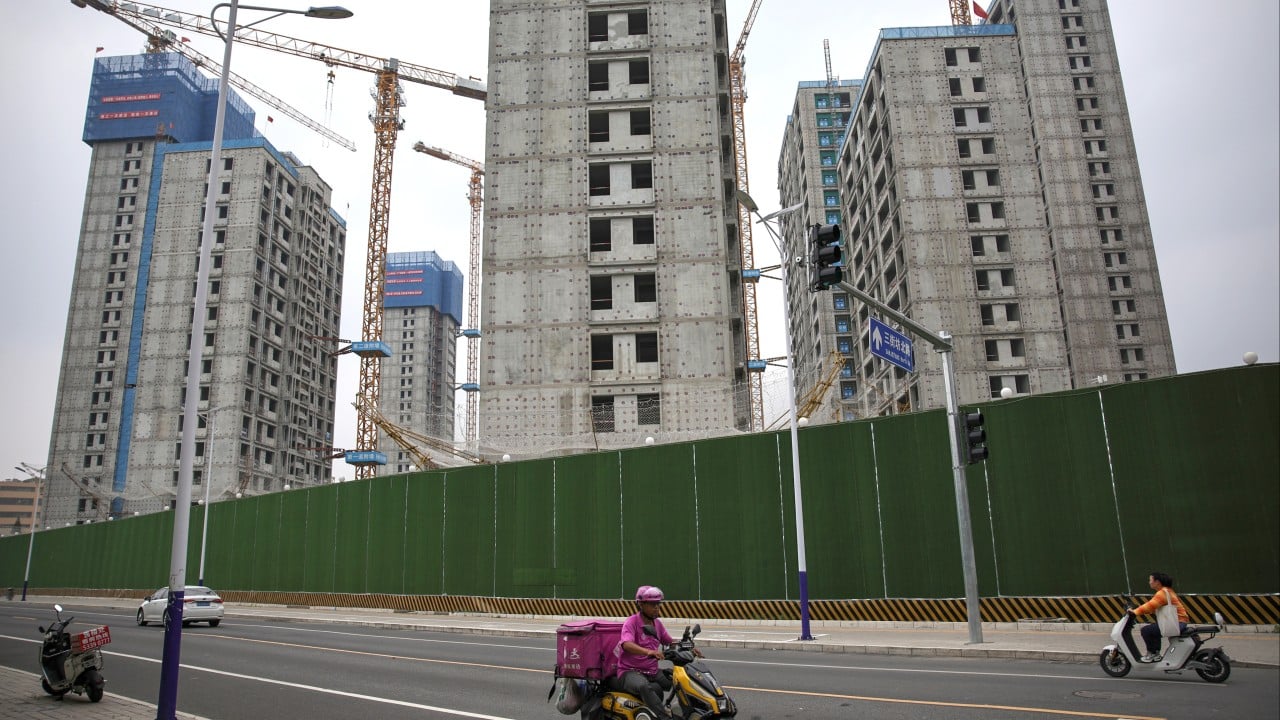With China’s three most economically important cities recently rolling out policies to address renewed weakness in the property sector, analysts say stabilising the industry would be significant in terms of boosting consumer sentiment, but that no quick market rebound should be expected.
Advertisement
After Beijing, north China’s biggest population centre, lifted purchase limits outside its Fifth Ring Road and eased housing fund rules in early August, Shanghai and Shenzhen followed suit with similar policies designed to boost demand for housing.
Those efforts in the three first-tier cities, dubbed by some as the last line of defence for China’s real estate market, might result in short-term rebounds in limited regions, said Lian Ping, director general of the China Chief Economists Forum, but there was no end in sight for the wider slump in the country’s economically important property sector.
“From an investment perspective, the share of real estate has been steadily declining in recent years, but it still holds a significant portion – comparable to manufacturing and infrastructure,” Lian said.
From January to August, real estate development investment accounted for 18.5 per cent of total fixed asset investment, according to the latest data from the National Bureau of Statistics (NBS). It accounted for 23.2 per cent in 2022, 22 per cent in 2023, and 19.5 per cent last year.
Advertisement
“It has an even greater impact on consumption, affecting over a dozen industries directly or indirectly tied to it … the economy’s in a rough spot right now, and real estate’s the main reason,” Lian said.
China’s economy, the world’s second-largest, has maintained a growth rate of around 5 per cent in the past couple of years even as a severe property crisis slashed sales and triggered deflation, curbing consumer confidence. Government stimulus, including rate cuts and developer bailouts, has mitigated some impacts, but persistent household deleveraging and trade tensions carry the risk of prolonged stagnation.

